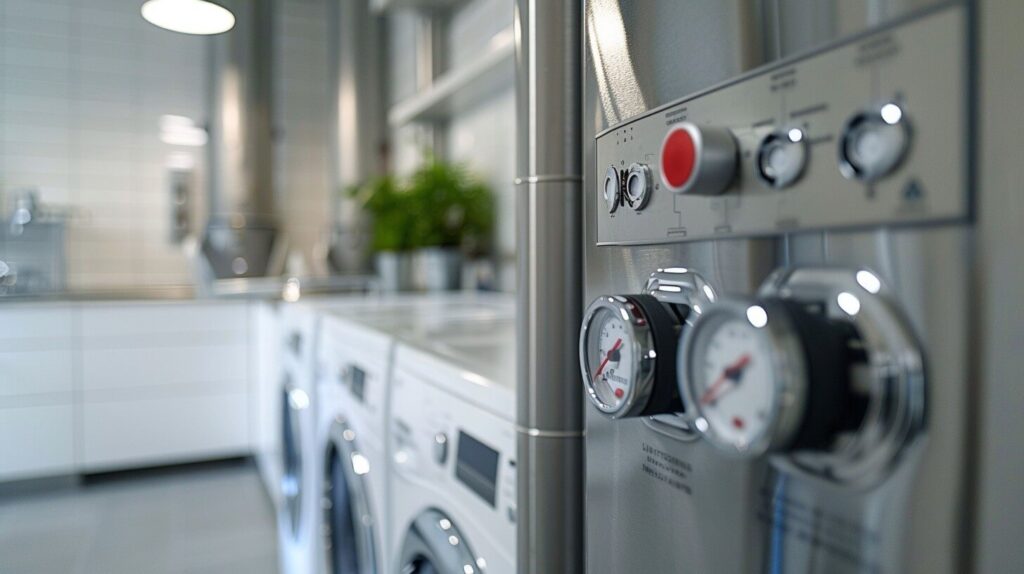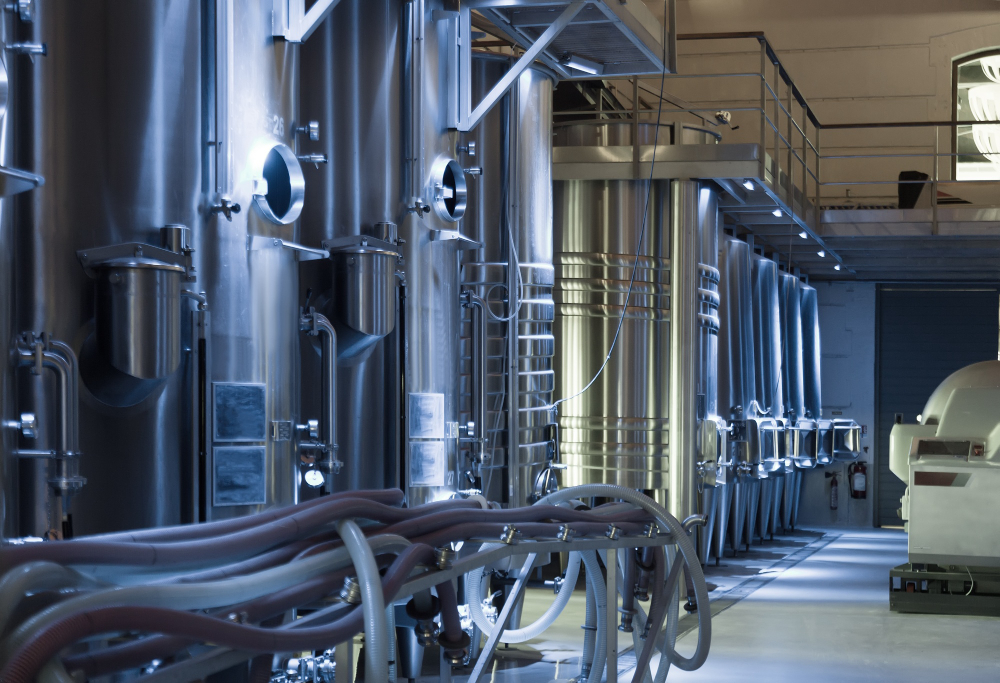
Water tank cleaning is a crucial aspect of ensuring clean and safe water for consumption and usage.
With regular maintenance and cleaning of water tanks, the risk of harmful contaminants such as bacteria and algae buildup can be minimised, leading to healthier water quality.
In addition, regular cleaning helps prevent the accumulation of sediment and debris, which can affect the taste and odour of the water.
One of the key reasons to prioritise regular water tank cleaning is to safeguard the health and safety of individuals who rely on the water supply.
Contaminated water can pose serious health risks, including waterborne diseases and gastrointestinal issues.
By maintaining clean water tanks, households and businesses can ensure that the water produced is safe for drinking, cooking, and other daily activities.
In the upcoming section, we will delve into the top 5 reasons why regular water tank cleaning should be a top priority for everyone.
key Takeaways
- Regular water tank cleaning helps prevent the growth of harmful bacteria, viruses, and parasites that can contaminate drinking water and cause illnesses.
- Clean water tanks improve water quality, taste, and odour, providing safe and refreshing drinking water for households and businesses.
- Regular maintenance reduces the risk of corrosion and leaks in water tanks, ensuring the longevity and efficiency of the water storage system.
- Proper cleaning and maintenance of water tanks comply with health and safety regulations, minimising legal liabilities and potential fines for non-compliance.
- Prioritising regular water tank cleaning promotes environmental sustainability by reducing the need for chemical treatments and premature replacements, conserving resources and reducing waste.
Why Should Regular Water Tank Cleaning be Prioritised for Health and Safety?
Prevention of Contamination
Regular water tank cleaning is essential to prevent the buildup of bacteria, algae, and other contaminants that can compromise the quality of the water.
These contaminants can lead to health issues when consumed, making it crucial to prioritise cleaning to ensure the safety of the water supply.
Protection Against Disease
Dirty water tanks can become breeding grounds for harmful pathogens such as E. coli and Legionella, which can cause serious illnesses when ingested.
By regularly cleaning water tanks, you can reduce the risk of these pathogens contaminating the water supply and protect against waterborne diseases.
Maintenance of Water Quality
Over time, sediment, rust, and other debris can accumulate in water tanks, affecting the taste and odour of the water.
Regular cleaning helps to maintain the quality of the water by removing these impurities and ensuring that it remains clear, clean, and safe for consumption.
Prolonged Lifespan of Water Tank
Regular cleaning not only benefits the quality of the water but also helps to extend the lifespan of the water tank itself.
By preventing the buildup of sediment and corrosion, cleaning can reduce wear and tear on the tank, prolonging its durability and functionality.
Compliance with Regulations
In many areas, there are strict regulations in place regarding the cleanliness of water tanks to ensure the safety and health of the public.
By prioritising regular cleaning, you can ensure that you are in compliance with these regulations and avoid any potential fines or penalties.
What are the essential steps to follow for effective water tank cleaning?
- Drain the water tank completely before starting the cleaning process.
- Scrub the interior surfaces of the tank with a mixture of water and detergent using a brush.
- Rinse the tank thoroughly to remove any traces of soap or residue.
- Disinfect the tank by using a chlorine solution or other approved disinfectants.
- Refill the tank with clean water and regularly monitor its quality to ensure ongoing safety and cleanliness.
FAQ
How often should water tanks be cleaned for optimal health and safety?
Water tanks should ideally be cleaned at least once a year to ensure safe and clean drinking water for your household.
However, if you notice any signs of contamination or discoloration in the water, it is advisable to clean the tank immediately.
Can I clean the water tank myself or should I hire a professional?
While it is possible to clean the water tank yourself, it is recommended to hire a professional for thorough cleaning. They have the necessary equipment and expertise to ensure that the tank is cleaned effectively and safely.
What are the risks of not cleaning water tanks regularly?
Not cleaning water tanks regularly can lead to the growth of harmful bacteria, algae, and other contaminants in the water.
This can pose serious health risks, including waterborne diseases and infections.
How does regular water tank cleaning contribute to energy efficiency?
Regular cleaning of water tanks helps in maintaining the efficiency of water heating systems.
A clean tank allows for better heat transfer, resulting in lower energy consumption and reduced heating costs.
Is it necessary to disinfect the water tank after cleaning?
Yes, disinfecting the water tank after cleaning is crucial to kill any remaining bacteria or germs.
This ensures that the water remains safe for consumption and minimises the risk of waterborne illnesses.

What are the signs that indicate the need for water tank cleaning?
Signs that indicate the need for water tank cleaning include foul odours in the water, discoloration, sediment buildup, and a decrease in water pressure.
If you notice any of these signs, it is important to clean the tank as soon as possible.
Does regular water tank cleaning affect the lifespan of the tank?
Regular water tank cleaning actually helps to extend the lifespan of the tank.
By removing sediments and contaminants, the tank is less likely to corrode or develop leaks, resulting in a longer-lasting water storage solution.
Can water tank cleaning help in preventing plumbing issues?
Yes, regular water tank cleaning can help in preventing plumbing issues such as clogs and blockages.
Clean water tanks reduce the risk of sediment buildup in pipes, ensuring smooth water flow throughout your plumbing system.
Does the material of the water tank affect the cleaning process?
Yes, the material of the water tank can affect the cleaning process. Different materials require different cleaning methods and products.
It is important to consult a professional to determine the best cleaning approach for your specific water tank material.
What are the benefits of hiring a professional water tank cleaning service?
Hiring a professional water tank cleaning service ensures thorough and effective cleaning, using safe and approved cleaning agents.
They also have the expertise to identify any issues with the tank and provide appropriate solutions, helping to maintain optimal health and safety standards.
Conclusion
Prioritising regular water tank cleaning is essential for ensuring the health and safety of your household.
By addressing common concerns such as water contamination, energy efficiency, and plumbing issues, you can prevent potential risks and maintain clean and safe drinking water for your family.
Remember to schedule annual cleanings with a professional service to keep your water tank in optimal condition and minimise health hazards.
Ultimately, investing in regular water tank cleaning is a cost-effective way to protect your family from waterborne illnesses and maintain the efficiency of your water system.
By understanding the importance of clean water storage and taking proactive steps to prioritise tank maintenance, you can enjoy peace of mind knowing that your water supply is safe and healthy for daily use.





